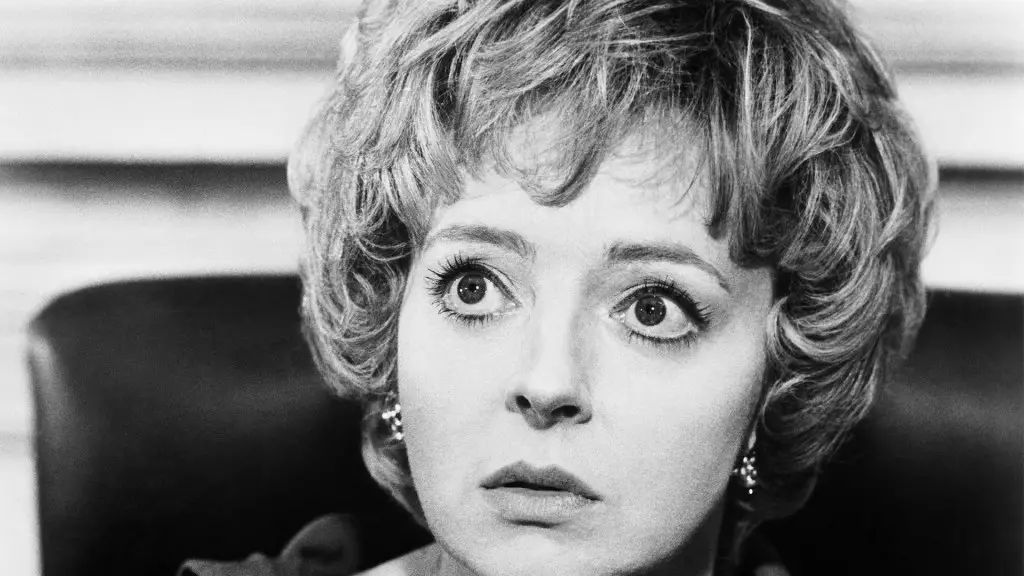Barbara Leigh-Hunt, a celebrated figure in both the world of theatre and cinema, has passed away at the age of 88 on September 16 at her home in Warwickshire, England. While the specific cause of her death was not disclosed by her family, the void left by her passing resonates deeply among those who appreciated her work. Leigh-Hunt’s legacy spans across multiple platforms, including her poignant role in Alfred Hitchcock’s film “Frenzy” and a wealth of distinguished performances on stage, both in the West End and on Broadway.
Leigh-Hunt’s most notable American film appearance was in Hitchcock’s penultimate thriller “Frenzy” (1972), where she portrayed the tragic character of Brenda Blaney. In a sequence that has become notorious in cinema history, Blaney is brutally raped and killed by a serial killer known as the “Necktie Murderer.” This harrowing role is emblematic of Leigh-Hunt’s ability to convey complex emotional narratives and her uncanny knack for embodying realistic human experiences. The character of Brenda is not only pivotal to the film’s plot, but her fate also serves as a catalyst for the ensuing drama surrounding her ex-husband, Richard Blaney, played by Jon Finch, who is unjustly accused of the crime.
Reflecting on her initial meeting with the legendary director Hitchcock, Leigh-Hunt recalled how she felt overwhelmed by the experience. In an interview with the BBC in 2017, she candidly shared her surprise at being cast in the film despite her self-doubt, stating, “To me he was a cinematic god, but I was convinced it was a complete waste of time as I’d never even made a film.” This moment encapsulates the artistic humility that defined Leigh-Hunt’s career, contrasting sharply with her immense talent.
Born on December 14, 1935, in Bath, England, Leigh-Hunt’s journey on the stage began long before her notable film career took off. She was acclaimed for her performances in prestigious venues like the National Theatre and the Old Vic. Her portrayal of Sybil Birling in Stephen Daldry’s renowned 1993 revival of “An Inspector Calls” earned her an Olivier Award, further cementing her status as a theatrical force. She frequently collaborated with the Royal Shakespeare Company, participating in classic productions including “Hamlet,” “Henry V,” and “Love’s Labour’s Lost.”
The breadth of her stage work reveals a deep dedication to her craft, showcasing her versatility as a performer. Leigh-Hunt also brought her talent to Broadway in the 1950s, appearing in productions of iconic Shakespearean works and contributing to later plays like “Sherlock Holmes” in the mid-1970s. Her commitment to theatre reflected her belief in the transformative power of storytelling, a belief that resonated throughout her entire career.
Beyond her rewarding stage career, Leigh-Hunt left an indelible mark on British television. Her talent graced numerous series, including a memorable portrayal of Lady Catherine de Bourgh in the 1995 BBC adaptation of “Pride and Prejudice,” alongside Colin Firth and Jennifer Ehle. This role was not only significant for its popularity but also showcased her ability to bring a nuanced understanding to characters that had already embedded themselves into literatures’ fabric.
Her extensive film career comprises noteworthy projects such as “Henry VIII and His Six Wives,” “Billy Elliot,” and the 2004 iteration of “Vanity Fair” featuring Reese Witherspoon. Each performance contributed to a rich tapestry of cinematic history, allowing Leigh-Hunt to leave her unique fingerprints on each project she undertook.
As her family prepares for a private funeral at St. John’s Church in Aston Cantlow, followed by burial, they have requested that, instead of flowers, donations be made to the Royal Theatrical Fund or Denville Hall, honoring her commitment to the arts and supporting her fellow performers. Barbara Leigh-Hunt’s death marks the closing of a significant chapter in British theatre and film history. Her artistic contributions continue to inspire and will surely be remembered by generations to come.

Leave a Reply